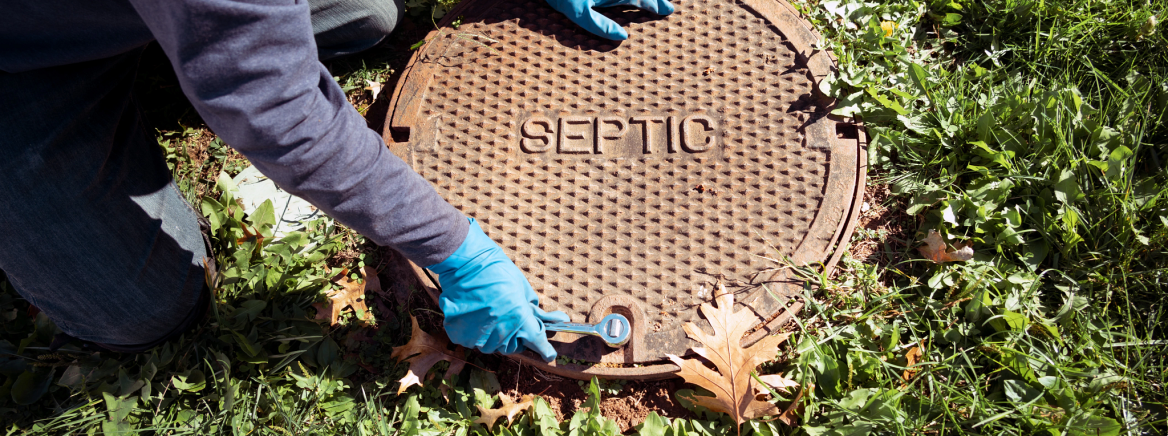Power Outages and Septic Systems

Power outages can cause major problems with septic systems. Residents that are not served by central water and wastewater systems may need to take precautions to prevent possible sewage contamination. Human exposure to wastewater can lead to disease transmission.
Those who have publicly supplied water service but private wastewater systems should also take precautions. Residents should check to ensure that their systems are not backing up, allowing sewage to surface, or otherwise malfunctioning.
If your area is affected by a power outage, assess your system and be prepared to take the following steps:
-
Wastewater systems may not work until floodwaters recede and the water table drops below the septic tank. The system will not function if your yard is flooded and should not be used.
-
Try to reduce the amount of debris such as yard waste, clean-up materials and sediment that may enter the septic tank and plumbing systems during and after the storm.
-
Residents should use extreme water conservation practices until power is restored or if other system problems are suspected. Flush toilets only when necessary, take sponge baths and do not run water while brushing teeth, shaving or cooking.
-
Do NOT continue to use water if sewage backs up into the house or if water or sewage surfacing near the septic system is visible--raw sewage is a public health problem and can cause disease. Remove and discard household goods that become contaminated with sewage and cannot be disinfected, such as rugs, wall coverings and drywall. Wear rubber boots and waterproof gloves when cleaning up sewage. Contact the Groundwater & Wastewater Services Program at 704-336-5103 before beginning maintenance or repairs.

